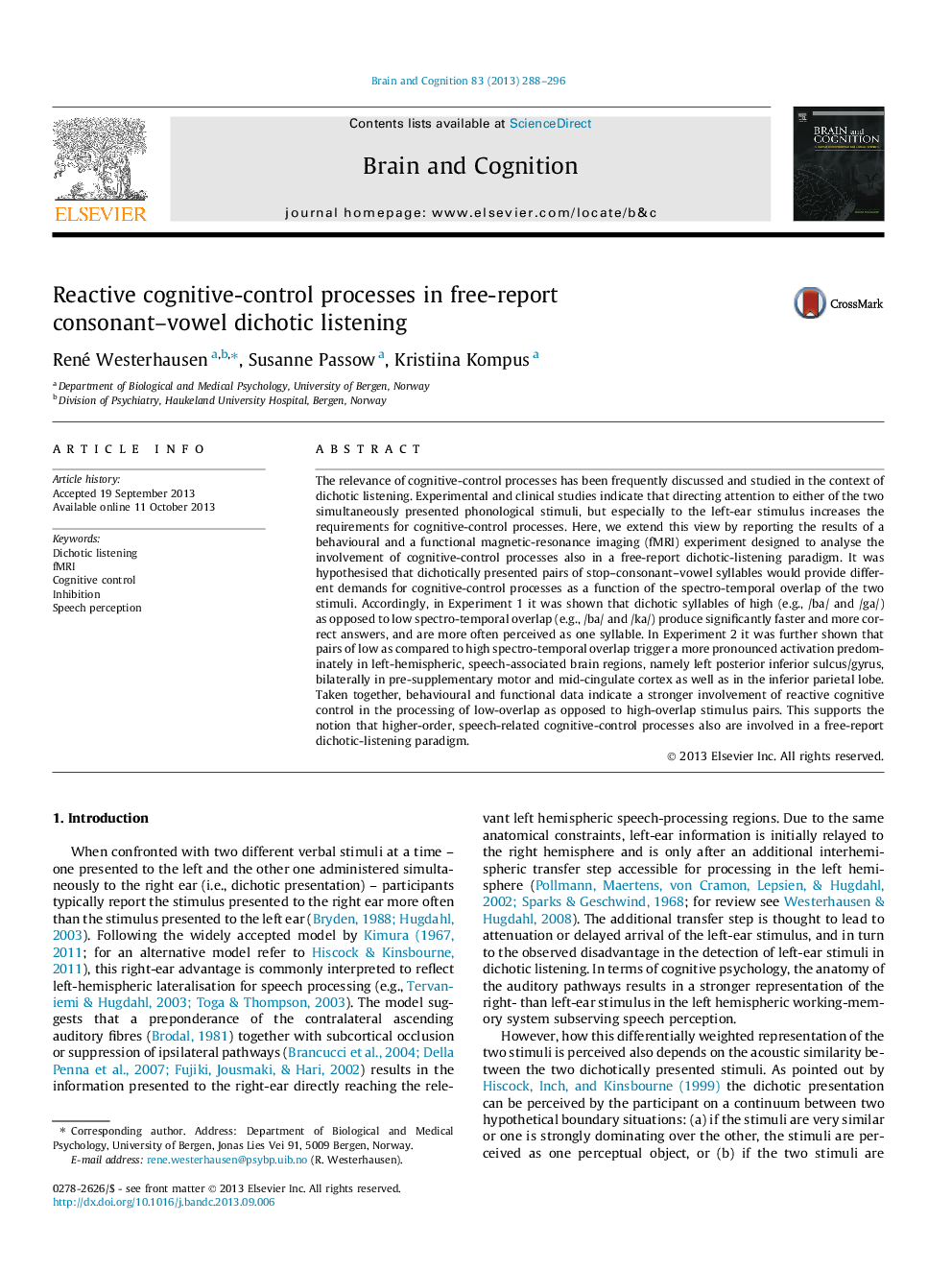| Article ID | Journal | Published Year | Pages | File Type |
|---|---|---|---|---|
| 924346 | Brain and Cognition | 2013 | 9 Pages |
•Dichotic CV-syllables of high compared to low spectro-temporal overlap are processed faster and more accurately.•Low compared to high overlap pairs stronger activate left-hemispheric, speech-associated cognitive control regions.•Reactive cognitive-control processes are involved in a free-report dichotic-listening paradigm.
The relevance of cognitive-control processes has been frequently discussed and studied in the context of dichotic listening. Experimental and clinical studies indicate that directing attention to either of the two simultaneously presented phonological stimuli, but especially to the left-ear stimulus increases the requirements for cognitive-control processes. Here, we extend this view by reporting the results of a behavioural and a functional magnetic-resonance imaging (fMRI) experiment designed to analyse the involvement of cognitive-control processes also in a free-report dichotic-listening paradigm. It was hypothesised that dichotically presented pairs of stop–consonant–vowel syllables would provide different demands for cognitive-control processes as a function of the spectro-temporal overlap of the two stimuli. Accordingly, in Experiment 1 it was shown that dichotic syllables of high (e.g., /ba/ and /ga/) as opposed to low spectro-temporal overlap (e.g., /ba/ and /ka/) produce significantly faster and more correct answers, and are more often perceived as one syllable. In Experiment 2 it was further shown that pairs of low as compared to high spectro-temporal overlap trigger a more pronounced activation predominately in left-hemispheric, speech-associated brain regions, namely left posterior inferior sulcus/gyrus, bilaterally in pre-supplementary motor and mid-cingulate cortex as well as in the inferior parietal lobe. Taken together, behavioural and functional data indicate a stronger involvement of reactive cognitive control in the processing of low-overlap as opposed to high-overlap stimulus pairs. This supports the notion that higher-order, speech-related cognitive-control processes also are involved in a free-report dichotic-listening paradigm.
